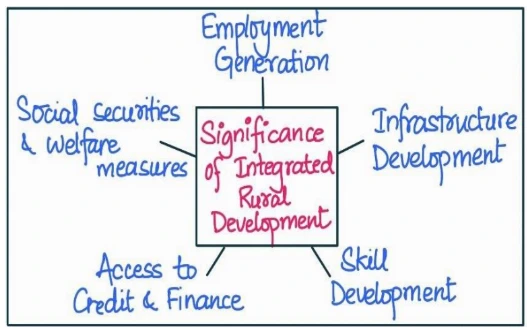Answer:
Approach:
|
Introduction:
The Indus Valley Civilization is one of the world’s oldest urban civilizations. It is known for extensivenplanning, consideration for the environment in planning etc. and offers valuable lessons for sustainable development practices in modern societies.
Body:
Lessons that can be derived from Indus Valley Civilisation:
 Prioritise mixed-use development: Planned city of Mohenjo-daro in the Indus Valley had a highly organised layout, with separate residential, commercial, and administrative areas.
Prioritise mixed-use development: Planned city of Mohenjo-daro in the Indus Valley had a highly organised layout, with separate residential, commercial, and administrative areas.Conclusion:
By incorporating these lessons from the Indus Valley Civilization, modern societies can strive for sustainable development, ensuring the well-being of current and future generations while preserving and protecting the environment, and heading towards SDG goals.
To get PDF version, Please click on "Print PDF" button.
Galgotias Robodog Scandal: India’s AI Sovereignt...
DGCA Proposal on 30-Day Flying Ban: Safety vs Pass...
Supreme Court Refers RTI Amendment Under DPDP Act ...
India–France Strategic Partnership and the Indo-...
The 1946 Royal Indian Navy Revolt: Solidarity amid...
Great Nicobar Island Project: NGT Upholds Environm...
US Supreme Court Blocks Trump’s IEEPA Tariffs on...
Pax Silica Initiative: India Joins Global Coalitio...
News in Shorts: 21 February 2026
Strait of Hormuz: Central to Global Energy Securit...
PAC Flags Poor Implementation of SANKALP Scheme Af...
IIT Madras Develops Optics-Based Blood Clotting Te...

<div class="new-fform">
</div>
https://uploads.disquscdn.com/images/35dbe2fda45855e236852a44bc9034b00f1413a52d33a639db548e4108c0ae0e.jpg https://uploads.disquscdn.com/images/0603ed2207aea093cb5d415343e2d8b888e04e46a1b9f6c63bf41ceb50912fc4.jpg
https://uploads.disquscdn.com/images/3d4de27890568ad70504bf08e8d6d8e7a80b4f8ae86ecb54e7d788e9e2671045.jpg https://uploads.disquscdn.com/images/af7d9de061c1173c3c7e5067062a402b8cc6048786ca8a879c5c2e202de253b3.jpg
https://uploads.disquscdn.com/images/baafe891ccfdc08997b3bcab016165fd904d487a38b0ac2a343d703555c79012.jpg https://uploads.disquscdn.com/images/7073cf3359d429c26450a49bb9d38124cc33bfe68773b2046372149dc13c24c9.jpg
https://uploads.disquscdn.com/images/930d2ec57fc23d4ae57810710ae69ade1162eb73415b39cb78281b9493ed1413.jpg https://uploads.disquscdn.com/images/e1ea6978d0f41553f5f9f6daa68fa43ae1f0a2363112c65ae2ddec4c2f6a1084.jpg
https://uploads.disquscdn.com/images/db748a845cf1427997c783e70983fee8656118296d72ff4b317cb1b921ecdeaa.jpg https://uploads.disquscdn.com/images/852927a4da7f635b63d7ebb1ee509e001e3525bc6a7f344152542749917ce95e.jpg